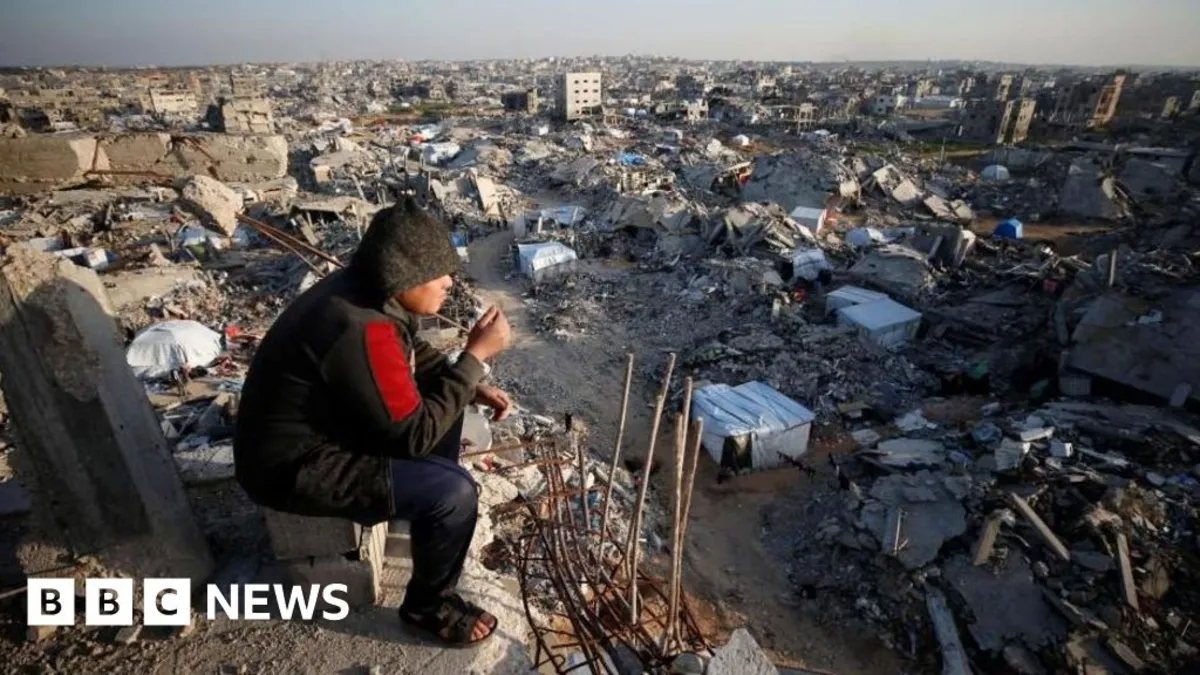
As the first six-week phase of the Gaza ceasefire approaches its conclusion this Saturday, the atmosphere is thick with uncertainty, hope, grief, and anger. Since January 9, there has been a mix of emotional highs and lows, yet critical actions regarding the release of hostages have not materialized as anticipated. While some Israeli hostages, both living and deceased, have been released, and a number of Palestinian prisoners have been freed, negotiations for the second phase have barely begun.
On Friday, talks commenced in Cairo, but Israel's delegation returned home the same evening, leaving many questions unanswered. Reports indicate that negotiations will continue remotely, with Israeli Prime Minister Benjamin Netanyahu scheduled for late-night discussions with senior ministers and intelligence chiefs. Conducting such a meeting late on the Sabbath is highly unusual, yet as of Saturday morning, no further details have emerged.
Israel appears to be seeking an extension of the current ceasefire phase for an additional six weeks, aiming to secure the return of more hostages and the release of additional Palestinian prisoners. However, the Israeli government is firm in its stance that it will not withdraw its troops from Gaza during this period. Officials assert that Hamas, the group responsible for the October massacres and the hostage crisis, must disarm and relinquish control over the Gaza Strip.
Moreover, Israel has expressed its unwillingness to vacate the Philadelphi corridor along the Egypt-Gaza border, a process that was supposed to begin on Saturday. An unnamed Israeli official stated, "We will not allow the Hamas murderers to again roam our borders with pickup trucks and guns, and we will not allow them to rearm through smuggling." Such anonymous quotes are frequently believed to originate from the Prime Minister's office.
Hamas has indicated that it will not agree to any extension of the ceasefire phase one without guarantees from American, Qatari, and Egyptian mediators for a successful phase two. The group seems determined to maintain its influence in Gaza, potentially delegating day-to-day governance to other Palestinian authorities, such as the West Bank-based Palestinian Authority.
Meanwhile, Egypt is formulating a reconstruction plan for Gaza, which serves as an alternative to former President Donald Trump's proposal to take over the area and evacuate its civilian population. However, Western diplomats express skepticism that the forthcoming plan, set to be unveiled at an Arab League summit in Cairo next Tuesday, possesses the robust security and governance structures necessary to satisfy Israeli demands.
This moment is critical for all parties involved. After weeks of emotional turmoil, Israelis have come to expect the gradual release of hostages. Reports suggest that there are still living hostages awaiting freedom, alongside another nine presumed dead. The Israeli public is eager for their return, keen to avoid the propaganda displays that have sparked national outrage.
Should the negotiations stall, public anger towards both Hamas and the Israeli government is likely to intensify. Planned street protests, including one on Saturday night at what has come to be known as Hostages Square in Tel Aviv, reflect this mounting frustration. The Hostages and Missing Families Forum has issued a call to action, demanding the return of all nine remaining hostages by day 30 of the agreement, emphasizing that this may be their only opportunity.
UN Secretary-General António Guterres has urged all parties to spare no effort to prevent a breakdown of the ceasefire agreement. There is a pervasive belief that the war may resume sooner or later, casting a bleak shadow over the future for both hostages and the two million Palestinians in Gaza who are striving to rebuild their lives amid this fragile peace.
In areas of Gaza that have thus far avoided the worst of the conflict, the potential for renewed warfare poses a dire threat. Such a development would exacerbate the already challenging living conditions in this ravaged region, where families continue to dig through rubble, sometimes with their bare hands, in search of the deceased.